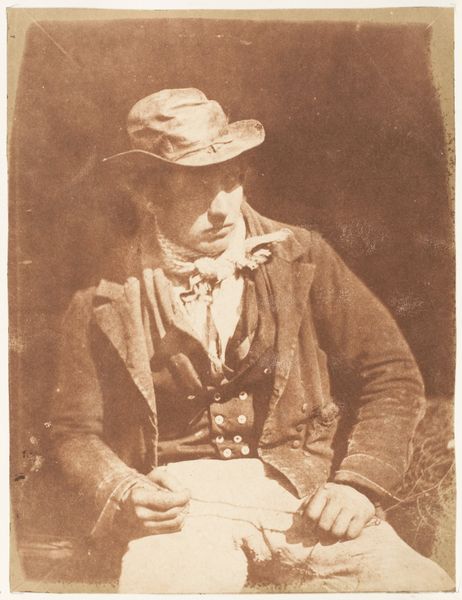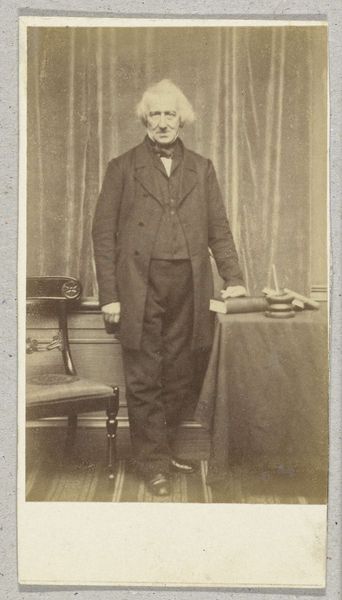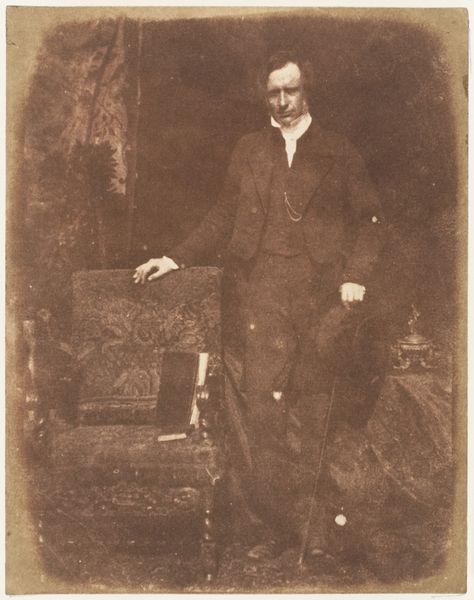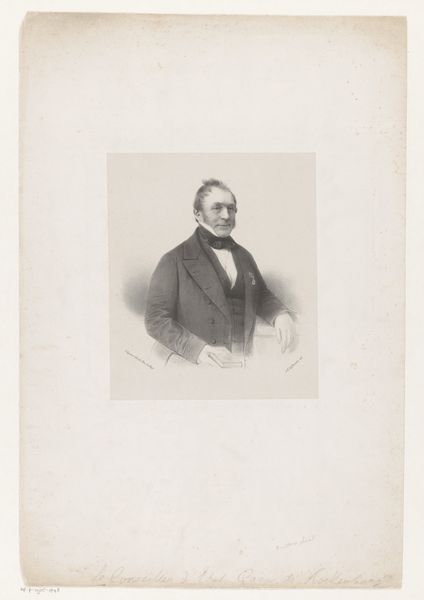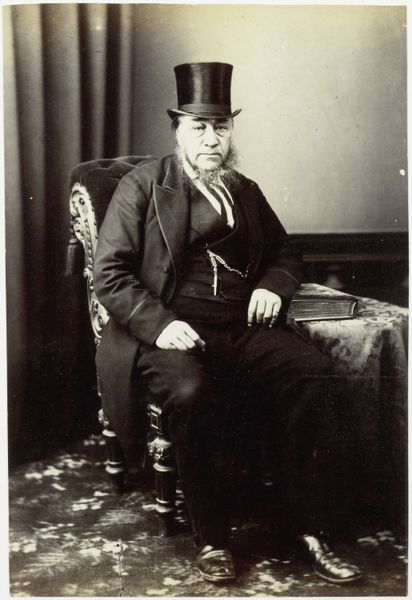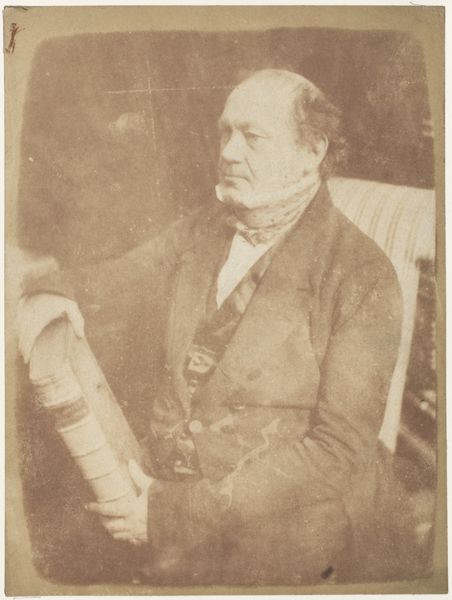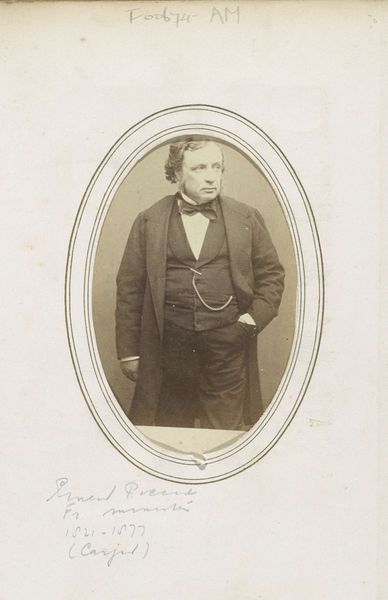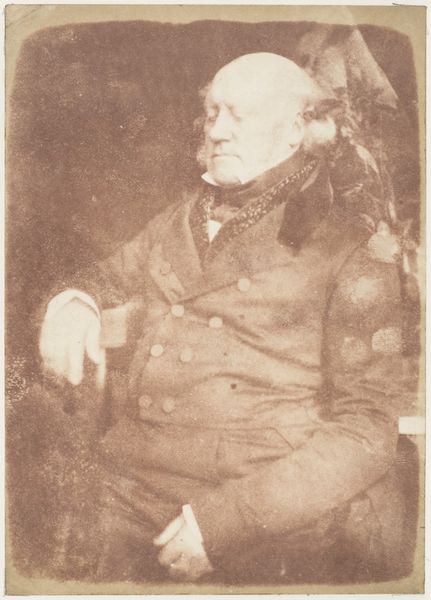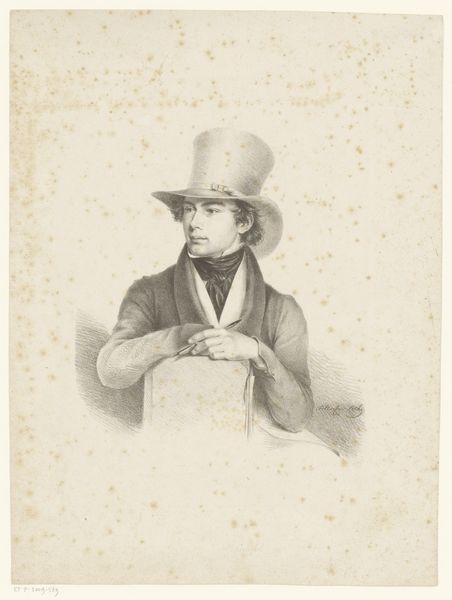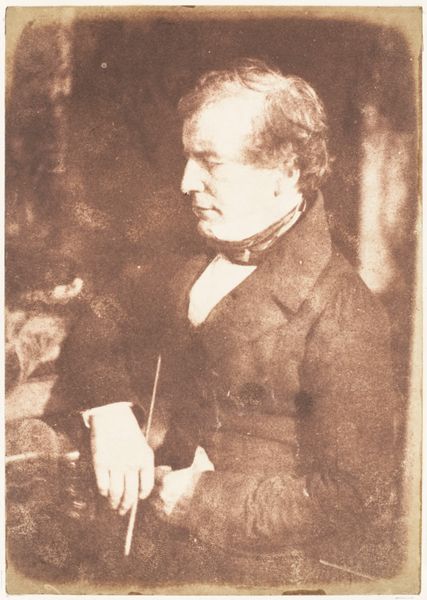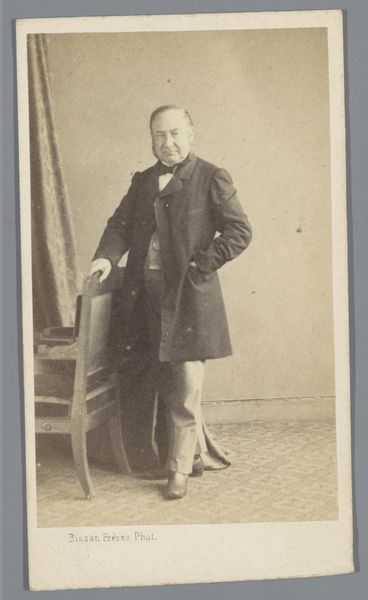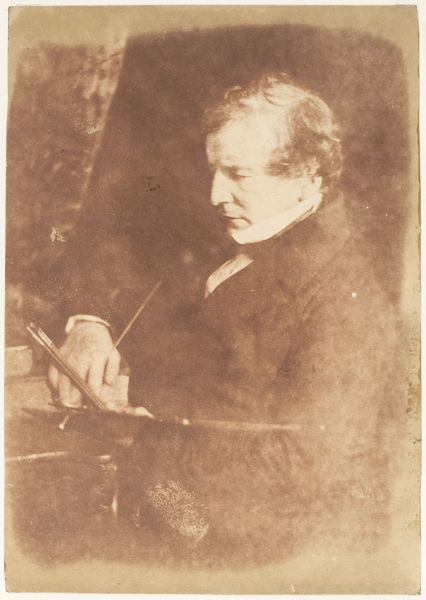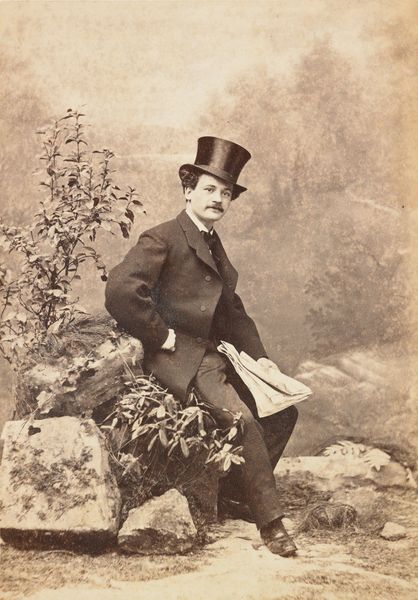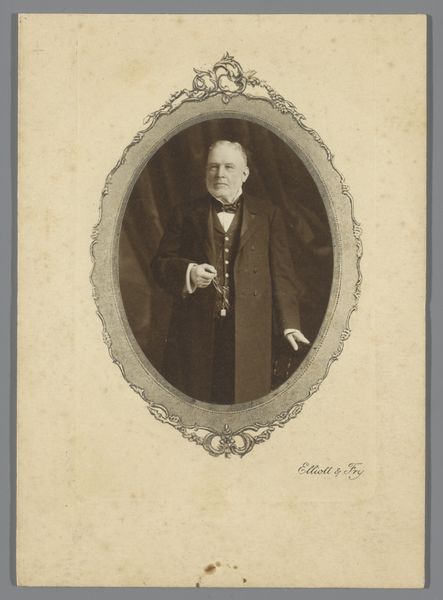
daguerreotype, photography
#
portrait
#
daguerreotype
#
photography
#
historical photography
#
romanticism
#
men
Copyright: Public Domain
This calotype of James Ballantine was produced in Scotland between 1843 and 1848 by the partnership of David Hill and Robert Adamson. It’s an early example of photography being used for portraiture. Hill and Adamson were pioneers who challenged the dominance of painting. They created a democratic art form by documenting a wide range of Scottish society, although this image depicts a man of obvious standing. Ballantine’s clothes speak of the upper middle classes, reinforcing the idea that the new technology of photography might make portraiture more accessible, but its use was not without its class biases. The photograph allows us to ask questions about how art reflects and shapes society, and how institutions like museums preserve and present these images. By looking at letters, diaries, and other historical documents, we can better understand the social and institutional context of works like this one. It’s crucial to remember that art is not created in a vacuum, but is always contingent on its time.
Comments
No comments
Be the first to comment and join the conversation on the ultimate creative platform.
